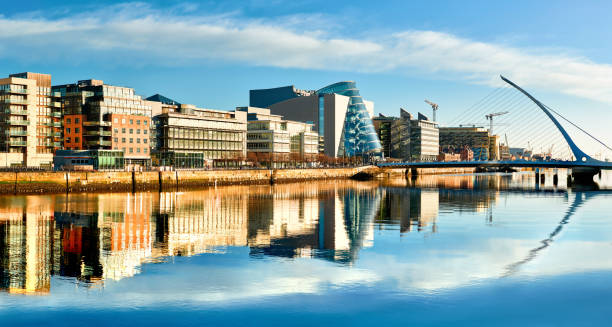Business activity in Dublin’s private sector continued to grow over the summer, but at a slower pace than earlier in the year, according to the latest Purchasing Managers’ Index from S&P Global.
The headline PMI for the capital stood at 50.8 in the third quarter of 2025, down from 52.2 in the previous quarter and marking the weakest rate of expansion since late 2022.
A score above 50 indicates growth, while anything below that signals contraction.
While growth was subdued, Dublin still managed to stay in positive territory, reflecting ongoing resilience across parts of the economy despite global uncertainty.
Across the rest of Ireland, the index also eased but remained slightly stronger than Dublin at 51.4.
The survey, which tracks output, new orders and employment across manufacturing, construction and services, showed that Dublin’s performance was mixed.
Manufacturing at 52.2 and construction at 50.6 both recorded modest increases in output.
However, the services sector, Dublin’s largest and a key driver of employment, slipped into contraction for the first time since early 2021 with a reading of 49.4.
Outside the capital, manufacturing and services firms continued to grow at 51.9 and 51.8 respectively, while construction output fell back into decline at 47.5.
There was some encouraging news on demand. After shrinking in the previous quarter, new business in Dublin returned to growth during the third quarter, with the New Orders Index climbing to 51.0. Analysts say the uptick may reflect easing concerns about international trade and greater stability in global markets.
The rest of Ireland also saw a modest improvement, with new orders reaching 50.8.
Employment remained a bright spot for Dublin. Companies continued to hire, with the Employment Index rising to 52.3, up from 51.3 in the previous quarter, the fastest pace of job creation since the same period last year.
Staffing levels in Dublin grew more quickly than in the rest of the country, where the index slipped slightly to 51.6.
Andrew Harker, Economics Director at S&P Global Market Intelligence, said the figures show a city economy that is going through a soft patch rather than a downturn.
The Dublin private sector went through a soft patch during the third quarter of the year, particularly in the service sector where business activity dipped slightly from the picture in the previous quarter, he said.
More positively, however, new orders returned to growth and greater certainty around US tariff policies will hopefully enable companies to build going into the final quarter of the year.
In fact, firms were confident enough to increase their pace of hiring, with additional workers taken on at a solid clip in the third quarter.
Overall, the latest PMI points to an economy still expanding, but more cautiously.
While services have softened, continued growth in manufacturing, steady demand and rising employment suggest Dublin’s private sector remains on a stable footing heading into the final months of 2025.
